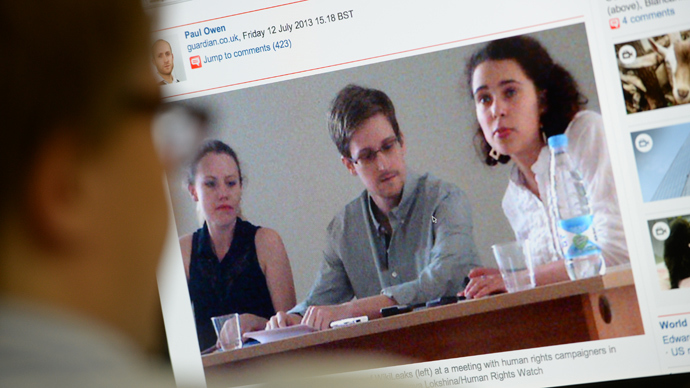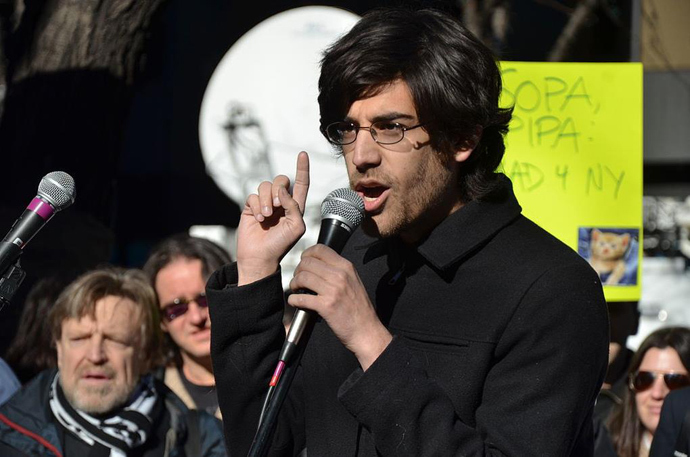Will Russia’s follow-up to Snowden be copyright reform?

Russia should not rest on its laurels as the world’s human rights leader after granting Snowden temporary asylum, it should think of ways to diversify its economy and ease its reliance on oil and gas.
Edward Snowden, the American whistle-blower has succeeded in his
asylum application in Russia and White House spokesman Jay Carney
appears flummoxed and wrong-footed as the mantle of free speech
and liberty passes from West to East; from Washington DC to the
Kremlin.
But Russia should not rest on its laurels. This would be an
excellent time to address a nettlesome problem with the Russian
economy nagging at its growth ambitions for decades: an over
reliance on oil and gas.
Russia’s economy is both cursed and blessed by oil. When the oil
price goes up, there is a tremendous ‘wealth effect’
spilling over into all corners, but this diminishes the drive to
develop other industries to diversify away from the over-reliance
on oil. And of course, when the oil price is weak, everyone slaps
their head and moans about how they should have diversified when
the price was higher. Now is the time to grab the bull by the
horns and take an initiative that will provide decades of non-oil
based revenues, and millions of new jobs that capitalize on
Russia's bright, young, technologically gifted generation.
The fact is, technological innovation and wealth creation has been thwarted for decades in America by creeping copyright extension laws spearheaded in the US (and spread around the world). Copyright, the right to have a limited period of monopoly protection for intellectual property, was put into law (and codified in America’s Constitution) with the express understanding that all intellectual property comes from the public domain and, after a reasonable (and short) period of time must return to the public domain from whence it came. But over the past few decades, corporate bullies like Disney and Microsoft have co-opted government with plutocratic lobbyists who have coerced lawmakers to extend copyright to lifetime plus 70 years: a term that Lawrence Lessig of Stanford University correctly identifies as ‘perpetual copyright’’ meaning, intellectual property never returns to the public domain and the public is poorer for it. Current copyright laws are a form of piracy led by corporations who steal our birthright (the ideas, stories, and characters) handed down to us through the millenia and then locked up; imprisoned on corporate balance sheets.

Russia, building on the incredible wave of global goodwill post-Snowden can strike an incredible blow for freedom by being the first country to take on copyright pirate Hollywood and NSA-collaborator Microsoft by introducing copyright laws that are consistent with what Thomas Jefferson argued was an appropriate copyright term: 14 years with a 14 year extension.
Aaron Swartz the copyright freedom fighter - who worked closely
with Lawrence Lessig on the 'Creative Commons' copyright
project was a victim of this ugly copyright cartel.
According to Aaron's dad: “Aaron did not commit suicide but was killed by the government. Someone who made the world a better place was pushed to his death by the government.”
Reading between the lines and it's clear: Mr. Swartz is correctly
calling Chris Dodd of the MPAA a murderer. Chris Dodd (and the
MPAA) is not someone Russia wants to be associated with I would
think in a post-Snowden world.
Millions around the world would be incredibly appreciative if Russia were to say ‘No’ to Hollywood’s lobotomy of our collective unconscious with their pernicious copyright gulag so that Aaron’s death was not in vein.
At the moment, Russia appears to be going in the opposite direction.
This pro-Hollywood position is patently wrong for the reasons
I've stated and makes Russia appear as a colony of Hollywood.
For the sake of the Russian economy, that would flourish under a
reasonable copyright system and for the sake of freedom fighters
like Snowden, Manning, Jullian Assange and Aaron Swarz, I implore
Russia to stand up to Hollywood like you stood up to Washington
DC, and strike a blow against immoral and dangerously repressive
copyright laws.
The statements, views and opinions expressed in this column are solely those of the author and do not necessarily represent those of RT.
The statements, views and opinions expressed in this column are solely those of the author and do not necessarily represent those of RT.













